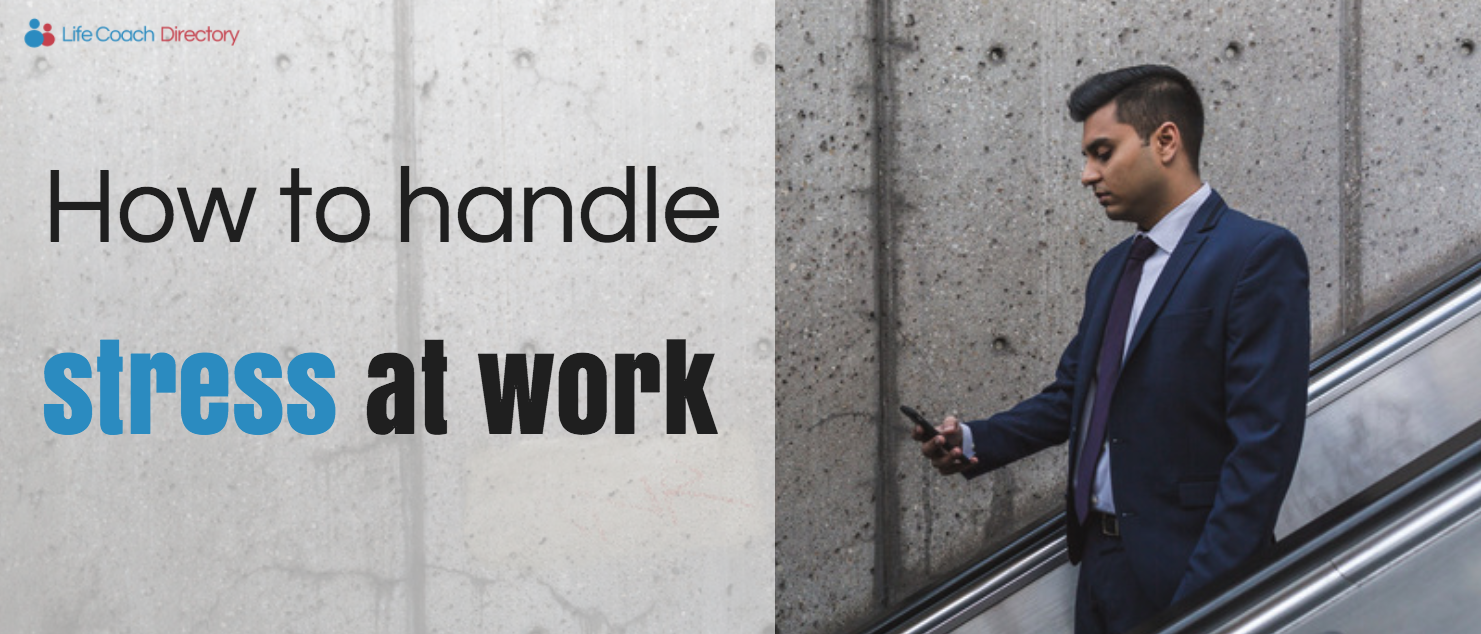How to handle stress at work
Sometimes you may think you have everything figured out. You understand your job, you’re good at it and you have routines in place to help you succeed.

So, why do you feel stressed?
It’s no secret that the workplace can sometimes get the better of us, no matter where we are in our career. Curveballs are thrown and speed bumps can derail our confidence. However, the good news is, there are many ways to overcome these obstacles.

Here’s our six-step guide to help you handle stress at work:
1. Address and assess
We all experience stress differently. Sometimes it’s glaringly obvious, other times it can be difficult to spot. There are many signs of stress and it can affect you physically and emotionally. Think about your symptoms – through recognising stress patterns, you can then find ways to avoid it.
When a client is unhappy, you may experience a time where you’re being blamed for it. This can lead to you assuming the worst, doubting your ability and worrying about how you’re being perceived by others. Instead, the best thing to do is take a step back and assess the situation. Is it your fault they’re upset?
If the answer is no, then you have no reason to worry. You’ve done your job to the best of your ability and shouldn’t let it worry you. If the answer is yes, then apologise. Accept that everybody makes mistakes and treat it as a learning curve. If it’s a regular occurrence then perhaps ask your manager if you can both come up with a solution to help prevent this in future.
Don’t just sit there and doubt yourself. Voice your concerns to prevent issues from spiralling.
2. Take a break
We are continuously battling with heavier workloads and longer working hours. As a result, this makes it difficult to take a step back from our desk, ultimately raising our stress levels.
Getting up and going for a walk can help reduce anxiety and depression so make sure to schedule some time to yourself. Whether it’s just before work, on your lunch break or even just around the office. No matter how brief, always try to find a space where you can refresh your mind.
3. Eat well
There are substantial benefits to having a quick cuppa with your colleagues. It can make you feel relaxed, energised and ready to face the day. However, never substitute good food for a quick fix. Replacing a good meal for a caffeine boost just isn’t healthy and will only ever be a short-term fix.
Focusing on your diet and regularly drinking water will improve your productivity and boost your mood. If possible, always aim to eat away from your desk so you come back in a better frame of mind and are ready to tackle the rest of your day.
4. Take control
Accepting defeat over an issue you’re passionate about is passive thinking and will only further increase your stress levels. You need to take control of the situation and find a solution that satisfies you and ultimately alleviates any unnecessary stress.
However, it’s also important to acknowledge situations that cannot be changed. Instead of wasting valuable time on an insolvable issue, concentrate on the jobs that you do have control over.
5. Focus on the little things
Sometimes, during a particularly demanding day, it’s difficult to find reasons to stay positive. But, dwelling on the negative will only make you miserable. Try to train your brain to see a positive in your day no matter how small. Focusing on it should help you uphold a positive outlook on your career.
6. Don’t be afraid to ask for help
Having a good network of colleagues can help ease any troubles at work and allow you to gain a new perspective on a difficult situation. Don’t be afraid to ask for their help. Talking things through with a colleague will help you find solutions to your problems.
Participate in workplace activities – the things we do with friends help us relax. No matter how seriously you take your career, laughter is essential and having a good laugh with a friend is an excellent way to relieve stress.
With our workload increasing, self-care is an essential asset to getting your life back on track. Hopefully, initiating these steps will help you decrease your stress levels and let you achieve maximum fulfilment in your career.

Find a coach dealing with Career coaching
All coaches are verified professionals





